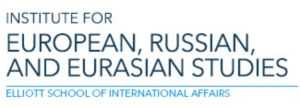2017 was a great year for publications
Central Asian studies are thriving! 2017 was a great year for publications. The range of books presented below covers multiple themes, from state structures, nationbuilding, and Islam, to the rich field of anthropology of bazaar culture, global connections, moral geography of pastures, and presence of ancestors and kinship references in everyday culture.
Regine A. Spector, Order at the Bazaar. Power and Trade in Central Asia, Cornell University Press
”Order at the Bazaar is an informative and innovative analysis of the political economy of bazaar markets in Kyrgyzstan. Based on rich data from the field, Spector provides an analysis of Kyrgyzstan’s on-going post-Soviet economic transition. Order at the Bazaar will appeal to students, scholars of the region, and political scientists concerned with weak and/or failing states.”
MICHELE E. COMMERCIO, UNIVERSITY OF VERMONT, AUTHOR OF RUSSIAN MINORITY POLITICS IN POST-SOVIET LATVIA AND KYRGYZSTAN
Order at the Bazaar delves into the role of bazaars in the political economy and development of Central Asia. Bazaars are the economic bedrock for many throughout the region—they are the entrepreneurial hubs of Central Asia. However, they are often regarded as mafia-governed environments that are largely populated by the dispossessed. By immersing herself in the bazaars of Kyrgyzstan, Regine A. Spector learned that some are rather best characterized as islands of order in a chaotic national context.
Spector draws on interviews, archival sources, and participant observation to show how traders, landowners, and municipal officials create order in the absence of a coherent government apparatus and bureaucratic state. Merchants have adapted Soviet institutions, including trade unions, and pre-Soviet practices, such as using village elders as the arbiters of disputes, to the urban bazaar by building and asserting their own authority. Spector’s findings have relevance beyond the bazaars and borders of one small country; they teach us how economic development operates when the rule of law is weak.
Nick Megoran, Nationalism in Central Asia. A Biography of the Uzbekistan-Kyrgyzstan Boundary, University of Pittsburgh Press
‘Biographies’ of political borders yield fresh insights on nationalism, argues Megoran in this morally compelling, multi-layered work. With over two decades of local language fieldwork, he weaves a thick account of the troubled boundary between two post-Soviet Central Asian states, showing how ‘interethnic conflict’ actually results from particular internal political decisions.”
MORGAN Y. LIU, THE OHIO STATE UNIVERSITY
Nick Megoran explores the process of building independent nation-states in post-Soviet Central Asia through the lens of the disputed border territory between Uzbekistan and Kyrgyzstan. In his rich “biography” of the boundary, he employs a combination of political, cultural, historical, ethnographic, and geographic frames to shed new light on nation-building process in this volatile and geopolitically significant region.
Megoran draws on twenty years of extensive research in the borderlands via interviews, observations, participation, and newspaper analysis. He considers the problems of nationalist discourse versus local vernacular, elite struggles versus borderland solidarities, boundary delimitation versus everyday experience, border control versus resistance, and mass violence in 2010, all of which have exacerbated territorial anxieties. Megoran also revisits theories of causation, such as the loss of Soviet control, poorly defined boundaries, natural resource disputes, and historic ethnic clashes, to show that while these all contribute to heightened tensions, political actors and their agendas have clearly driven territorial aspirations and are the overriding source of conflict. As this compelling case study shows, the boundaries of the The Ferghana Valley put in succinct focus larger global and moral questions of what defines a good border.
Pauline Jones (editor), Islam, Society, and Politics in Central Asia, University of Pittsburgh Press
“Islam, Society, and Politics in Central Asia tackles a topic of crucial concern for scholars and policymakers alike. Moving well beyond the punditry that characterizes most discussions, this truly interdisciplinary endeavor provides much-needed scholarship about Islam built upon well-considered fieldwork. In doing so, it makes a powerful case for grounding our knowledge in the realities of the region.”
EDWARD SCHATZ, UNIVERSITY OF TORONTO
List of contributors: Rouslan Jalil, Svetlana Peshkova, Vera Exnerova, David Abramson and Noah Tucker, Emily O’Dell, Eren Murat Tasar, Noor O’Neill Borbieva, Tim Epkenhans, Alisher Khamidov, Mukaram Toktogulova, Aisalkyn Botoeva, Manja Stephan-Emmrich
During the 1990s, there was a general consensus that Central Asia was witnessing an Islamic revival after independence, and that this occurrence would follow similar events throughout the Islamic world in the prior two decades, which had negative effects on both social and political development. Twenty years later, we are still struggling to fully understand the transformation of Islam in a region that’s evolved through a complex and dynamic process, involving diversity in belief and practice, religious authority, and political intervention. This volume seeks to shed light on these crucial questions by bringing together an international group of scholars to offer a fresh perspective on Central Asian states and societies. The chapters provide analysis through four distinct categories: the everyday practice of Islam across local communities; state policies toward Islam, focusing on attempts to regulate public and private practice through cultural, legal, and political institutions and how these differ from Soviet policies; how religious actors influence communities in the practice of Islam, state policies towards the religion, and subsequent communal responses to state regulations; and how knowledge of and interaction with the larger Islamic world is shaping Central Asia’s current Islamic revival and state responses. The contributors, a multidisciplinary and international group of leading scholars, develop fresh insights that both corroborate and contradict findings from previous research, while also highlighting the problem of making any generalizations about Islam in individual states or the region. As such, this volume provides new and impactful analysis for scholars, students, and policy makers concerned with Central Asia.
John Heathershow and Edward Schatz (editors), Paradox of Power. The Logics of State Weakness in Eurasia, University of Pittsburgh Press
“An impressive collection, providing fresh, original analysis. This volume presents a solid mix of common themes and individual, compelling chapters, and fascinating topics. Heathershaw and Schatz wrestle with an important concept—the strong-weak state distinction and offer a conceptual set of alternative roles and dynamics that they observe states playing in the post-Soviet space. It will become a standard source on the topic of the state in Eurasia.”
ALEXANDER COOLEY, COLUMBIA UNIVERSITY
List of contributors: Jesse Driscoll, Scott Radnitz, Alexander Kupatadze, Johan Engvall, Gavin Slade, Klaus Schlichte, David Lewis, Stefanie Ortmann, Alex Jeffrey, Alisher Khamidov, Elena Maltseva, Paul D’Anieri, Madeleine Reeves, Mark R. Beissinger
“State weakness” is seen to be a widespread problem throughout Central Asia and other parts of postsocialist space, and more broadly in areas of the developing world. Challenging the assumption that these “weak states” inevitably slide toward failure, Paradox of Power takes careful stock of the varied experiences of Eurasian states to reveal a wide array of surprising outcomes. The case studies show how states teeter but do not collapse, provide public goods against all odds, interact with societies in creative ways, utilize coercion effectively against internal opponents, and establish practices that are far more durable than the language of “weakness” would allow. While deepening our understanding of the phenomenon in Eurasia in particular, the essays also contribute to more general theories of state weakness.
Julie McBrien, From Belonging to Belief. Modern Secularisms and the Construction of Religion in Kyrgyzstan, University of Pittsburgh Press
“Through her close-in studies of religion, secularism and modernity in Kyrgyzstan, as manifest across weddings and Portuguese television to debates over mosques and schools, McBrien makes a powerful case for bringing Soviet and post-Soviet nonliberal forms of secularism into current analytical debates.”
JOHN R. BOWEN, WASHINGTON UNIVERSITY IN ST. LOUIS
From Belonging to Belief presents a nuanced ethnographic study of Islam and secularism in post-Soviet Central Asia, as seen from the small town of Bazaar-Korgon in southern Kyrgyzstan. Opening with the juxtaposition of a statue of Lenin and a mosque in the town square, Julie McBrien proceeds to peel away the multiple layers that have shaped the return of public Islam in the region. She explores belief and nonbelief, varying practices of Islam, discourses of extremism, and the role of the state, to elucidate the everyday experiences of Bazaar-Korgonians. McBrien shows how Islam is explored, lived, and debated in both conventional and novel sites: a Soviet-era cleric who continues to hold great influence; popular television programs; religious instruction at wedding parties; clothing; celebrations; and others. Through ethnographic research, McBrien reveals how moving toward Islam is not a simple step but rather a deliberate and personal journey of experimentation, testing, and knowledge acquisition. Moreover, she argues that religion is not always a matter of belief—sometimes it is essentially about belonging.
From Belonging to Belief offers an important corrective to studies that focus only on the pious turns among Muslims in Central Asia, and instead shows the complex process of evolving religion in a region that has experienced both Soviet atheism and post-Soviet secularism, each of which has profoundly formed the way Muslims interpret and live Islam.
Till Mostowlansky, Azan on the Moon. Entangling Modernity along Tajikistan’s Pamir Highway, University of Pittsburgh Press
“Azan on the Moon is a landmark contribution to the anthropology of modernity. Meticulously researched and lucidly written, Mostowlansky’s subtle analysis of the afterlives of Soviet developmentalism along the Trans-Pamir Highway shows how ‘modernity’ itself becomes a central figure through which Pamiris navigate economic change, religious reform, and political marginalization at the turn of the millennium.”
MADELEINE REEVES, UNIVERSITY OF MANCHESTER
Azan on the Moon is an in-depth anthropological study of people’s lives along the Pamir Highway in eastern Tajikistan. Constructed in the 1930s in rugged high-altitude terrain, the road fundamentally altered the material and social fabric of this former Soviet outpost on the border with Afghanistan and China. The highway initially brought sentiments of disconnection and hardship, followed by Soviet modernization and development, and ultimately a sense of distinction from bordering countries and urban centers that continues to this day. Based on extensive fieldwork and through an analysis of construction, mobility, technology, media, development, Islam, and the state, Till Mostowlansky shows how ideas of modernity are both challenged and reinforced in contemporary Tajikistan. In the wake of China’s rise in Central Asia, people along the Pamir Highway strive to reconcile a modern future with a modern past. Weaving together the road, a population, and a region, Azan on the Moon presents a rich ethnography of global connections.
Jeanne Féaux de la Croix, Iconic Places in Central Asia: the Moral Geography of Pastures, Dams and Holy Sites, Columbia University Press
Jeanne Féaux de la Croix maps three iconic places as part of Central Asians’ “moral geographies” and examines their role in navigating socialist, neo-liberal, and neo-Islamic life models. Dams provide most Kyrgyzstan’s electricity, but are also at the heart of regional water disputes that threaten an already shrinking Aral Sea. Mountain pastures cover much of Central Asia’s heartland and offer a livelihood and refuge, even to urban citizens. Pilgrimage sites have recovered from official Soviet oblivion and act as cherished scenes of decision-making. Examining how iconic places, work, and well-being can mesh together, this book moves debates about post-Soviet memory, space, and property onto fresh terrain.
Eva-Marie Dubuisson, Living Language in Kazakhstan. The Dialogic Emergence of an Ancestral Worldview, University of Pittsburgh Press
“Outstanding work. Living Language in Kazakhstan is a rare attempt to capture what the author names as the ‘affective landscapes’ of Kazakh spirituality. By focusing on th construction of intergenerational relationships within families and broader communities, Dubuisson demonstrates that the spirits of deceased ancestors play a central role in Kazakh social life, constituting a particular worldview historically rooted in an Inner Asia’s belief system.”
SAULESH YESSENOVA, UNIVERSITY OF CALGARY
Eva-Marie Dubuisson provides a fascinating anthropological inquiry into the deeply ingrained presence of ancestors within the cultural, political, and spiritual discourse of Kazakhs. In a climate of authoritarianism and economic uncertainty, many people in this region turn to their forebearers for care, guidance, and advice, invoking them on a daily basis. This “living language” creates a powerful link to the past and a stable foundation for the present. Through Dubuisson’s participatory, observational, and lived experience among Kazakhs, we witness firsthand the public performances and private rituals that show how memory and identity are sustained through an oral tradition of invoking ancestors. This ancestral dialogue sustains a unifying worldview by mediating questions of faith and morality, providing role models, and offering a mechanism for socio-political critique, change, and meaning-making. Looking beyond studies of Islam or heritage alone, Dubuisson provides fresh insights into understanding the Kazakh worldview that will serve students, researchers, GMOs, and policymakers in the region.
Aksana Ismailbekova, Blood Ties and the Native Son. Poetics of Patronage in Kyrgyzstan, Indiana University Press
A pioneering study of kinship, patronage, and politics in Central Asia, Blood Ties and the Native Son tells the story of the rise and fall of a man called Rahim, an influential and powerful patron in rural northern Kyrgyzstan, and of how his relations with clients and kin shaped the economic and social life of the region. Many observers of politics in post-Soviet Central Asia have assumed that corruption, nepotism, and patron-client relations would forestall democratization. Looking at the intersection of kinship ties with political patronage, Aksana Ismailbekova finds instead that this intertwining has in fact enabled democratization—both kinship and patronage develop apace with democracy, although patronage relations may stymie individual political opinion and action.























